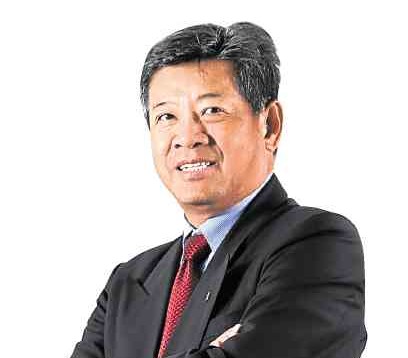‘MaSingNoy’ finds challenge selling cameras in PH
The top executive of Canon’s business here in the Philippines started his career selling photocopying machines more than three decades ago.
Lim Kok Hin, 59, has been employed under the Canon brand his entire professional life, working his way up the corporate ladder that would make him the president of Canon Marketing Philippines Inc. (CMPI) beginning July 2014.
He traces his roots to Malaysia, where he first sold photocopying machines after graduating from the University of Bradford in the United Kingdom. It was a time when there were still not many graduates around.
“So when I came back, I thought it was good that I started right from the bottom to understand everything about the company. I was doing sales for about six months then I became supervisor. From supervisor, I became assistant manager, and then manager, and that’s how I started,” he said in an interview.
Lim would stay in Canon Malaysia for about 20 years, holding different management positions before being assigned in Singapore in 2005, where he would later become vice president of the company’s Business Imaging Solutions (BIS).
The steady climb spanning 35 years has developed a steadfast leadership that was recently recognized by Enterprise Asia, the region’s foremost association and think tank for entrepreneurship.
Lim was one of the winners in last year’s Asia Pacific Entrepreneurship Awards, a win he attributed to “mainly our people” doing a “good job.”
From outside looking in
Lim would often joke he was a “MaSingNoy”—a term he coined to mean he was born in Malaysia, a citizen in Singapore, but lives here in the Philippines.
He admitted he had his expectations coming here.
Lim, who has been with CMPI for over two years now, said his impression was that the Philippines seemed lucrative, especially comparing the population of the country to that of Singapore, which only has a fraction of the population here.
“It’s true that a lot of people from outside wonder why the Philippines did not achieve its full potential. I think it’s not just me, but lots of people feel the same way. They wonder why. But when you come here to work, you begin to understand the challenges,” he said.
Prior to globalization, he said the geography of the Philippines gave companies the advantage of “insulating” against competition. He said it was difficult to set up shop here based on a logistical perspective.
But this advantage can also have its flaws when firms “have more room to make mistakes,” such as becoming complacent.
The advent of e-commerce became a breeding ground for competition as firms from across the globe began accessing the Philippines.
Lim said things changed in the last 20 years in light of globalization.
“By and large, Canon’s decision to implant itself in the Philippines is a good one. I think the people involved have done a reasonable job of making Canon a decent brand,” he said. CMPI has been in the country for around two decades now.
Canon’s product line ranges from those easily recognizable by the public—such as printers and cameras—to less known ones such as medical and business efficiency equipment.
But the rise of smartphones, he said, has been eating up a share of the camera market. Still, the company is making a killing in the middle- to the high-end markets.
“There are more people taking pictures using smartphones, but that also means more people recognize smartphones have limitations. More people realize they need a good camera when there’s a holiday coming or a new child in the family. That’s where a Canon comes in,” he said.
Despite the challenges, he said the Philippines remained one of Canon’s most promising markets.
Do more, work less
While pressure remains high to sustain the company’s performance, Lim thinks Canon employees shouldn’t spend too much time in the workplace.
Under his leadership, Canon Philippines has adopted a “do more, work less” program that encourages workers to think of their lives outside an 8-to-5 job.
“We think it’s not sustainable for a person to work until 10 every night. Even if some are willing to do that, what about their families? What about their interests in life? What about life itself? They just become engrossed with company work without having decent lives,” he said.
He said he would encourage his employees to go home early and have some personal time for themselves (given the traffic problems around the metropolis, too). He said the lack of work-life balance would eventually affect one, if not both.
“Honestly, after they complete their tasks and they reach home, they have no time to spend with their children. Maybe their children are asleep. They have to wash up, eat a little bit, and the next day they come to work. How productive can they get?” he asked.
The program reduces the risk of burnout, which would entail bigger costs in the future.
He believes the program proved effective, with the employees’ productivity increasing by 18 percent year-on-year.















